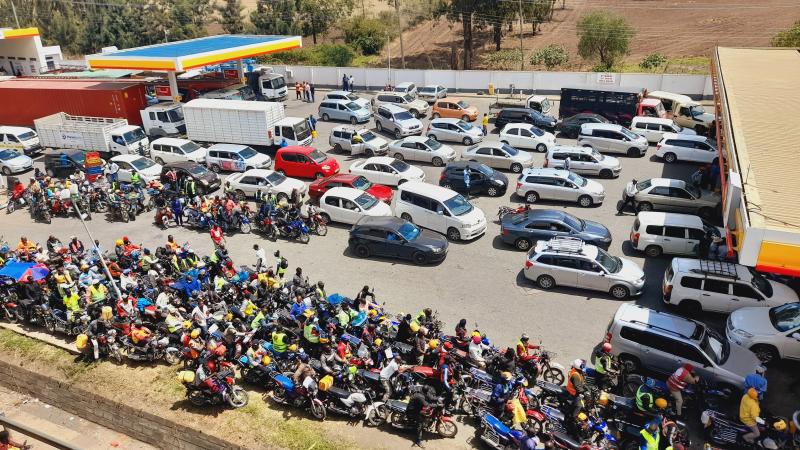Motorists wait their turn to fuel at Shell petrol station section 58 in Nakuru on April 12, 2022. [Harun Wathari, Standard
×
The Standard e-Paper
Kenya’s Boldest Voice

Some oil marketing companies increased the amount of fuel exported to neighbouring countries while they withheld the product meant for the local market, The Standard has established.
This, according to the Energy and Petroleum Regulatory Authority (Epra), has plunged the country into a crisis.